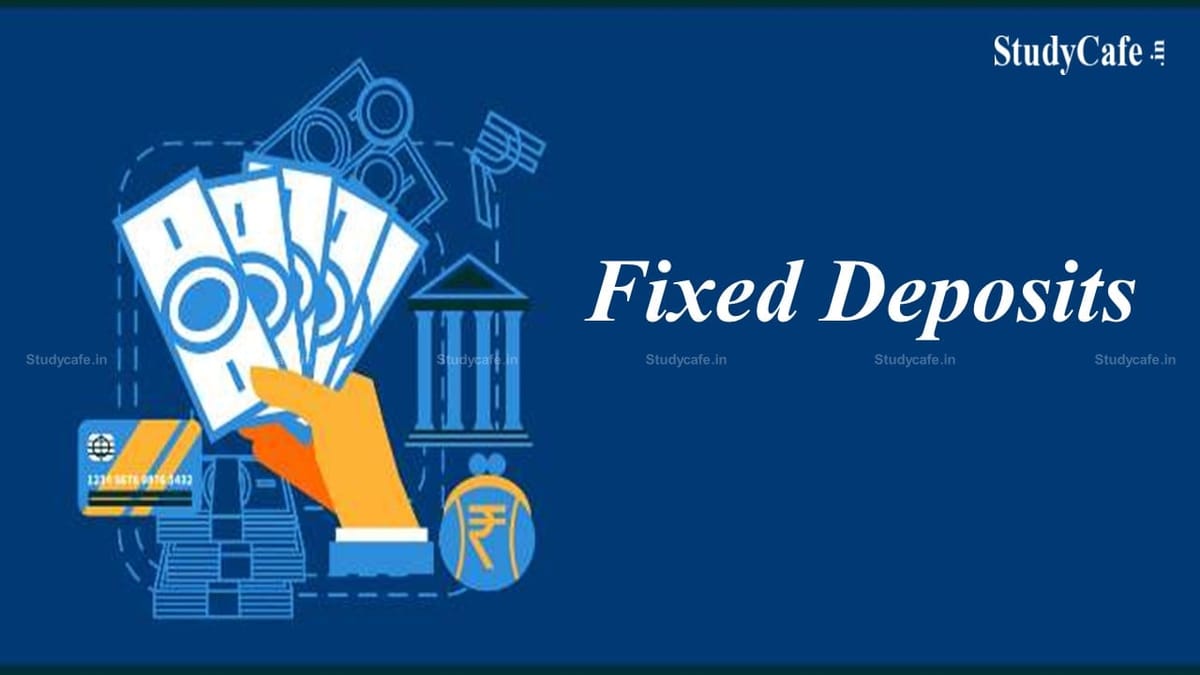Deepak Gupta | Mar 23, 2022 |

Important Features You Must Know About Fixed Deposits in India
Today, individual finances are ruled by market-related investment schemes. Even so, fixed deposits remain the most-trusted method of protecting personal funds. This is largely due to the interest rates remaining fixed for the entire investment term. Hence, even though share markets and mutual funds are likely to bring in higher returns, investors prefer to multiply their earnings in a less volatile area.
In a fixed deposit, you can lock a lump sum amount of money for a fixed term and enjoy guaranteed returns on the capital. It goes unsaid that with so many banks and financial institutions curating their own investment ventures, you must conduct basic research about the fixed deposit scheme that you are leaning toward.
Understanding the basic elements of an FD, such as interest rate, principal amount, and investment tenure, is vital. Similarly, you must know the two broad types of fixed deposits to opt for the one that best caters to your monetary needs.
Mentioned below are the two types of fixed deposit schemes in India-
1) Cumulative FD
In a cumulative fixed deposit, interest is calculated on the principal amount of investment along with the re-invested interest amount. So, to put it simply, your interest (calculated monthly, quarterly, or annually) is considered as added capital.
You can earn higher gains through a cumulative FD since the accumulated interest keeps compounding every month/6 months/12 months. However, you can withdraw the entire amount only upon maturity. This investment mode is ideal for people who don’t mind sealing a substantial amount of money in one go.
2) Non- Cumulative FD
In a non-cumulative FD, the interest is solely calculated on your principal amount. Thus, you can withdraw the interest either monthly, quarterly, or annually. A non-cumulative fixed deposit is genuinely beneficial for retired individuals with no income, considering that the interest pay-out can be used to meet daily expenses. It is also important to note that most banks and NBFCs offer higher interest rates to senior citizens.
To choose the best fixed deposit rates, you can visit the PNB website and compare the values displayed on the chart.
Apart from knowing what differentiates the two categories of Fixed Deposits mentioned above, you must also know the general aspects of the said investment scheme in India.
1) Rate of Interest
In a fixed deposit, the rate of interest at which you lock your funds remains unchanged throughout the investment period. As per the fixed deposit scheme designed by each bank, you can compute your precise profit margin using an online FD calculator.
2) Principal Amount
In most cases, to secure your monetary resources in an FD, you need to deposit a minimum amount of ₹ 5,000. Having said that, there is no upper limit. Upon maturity of the deposit, you can choose to renew the scheme at a similar interest rate by talking to your lender about it.
3) Tenure
The term for which you choose to keep your money with the bank determines the interest you will receive. The longer the investment period, the higher the gains – this is the mantra for every Fixed deposit scheme. You can open an FD account with any Indian bank for a minimum of 7 days, to a maximum tenure of 10 years.
4) Nomination Facility
Securing your life savings isn’t just a way to earn returns on investment but also establish a safety net for your loved ones. In most cases, lenders ask investors to name a nominee that will acquire the funds if the said investor passes away.
5) TDS on Interest Earned
The TDS rate on fixed deposits is 10% if the interest amount for the entire financial year exceeds Rs 40,000. Also, an investor can claim a maximum deduction of Rs in a tax-saving fixed deposit (under Section 80C of the Income Tax Act). 1.5 lakh per annum.
Given its several benefits, an FD scheme is a safe tool that promotes savings and brings in assured returns. Find the best fixed deposit to lock your money in with PNB.
In case of any Doubt regarding Membership you can mail us at [email protected]
Join Studycafe's WhatsApp Group or Telegram Channel for Latest Updates on Government Job, Sarkari Naukri, Private Jobs, Income Tax, GST, Companies Act, Judgements and CA, CS, ICWA, and MUCH MORE!"